Warning Signs of Multiple Myeloma
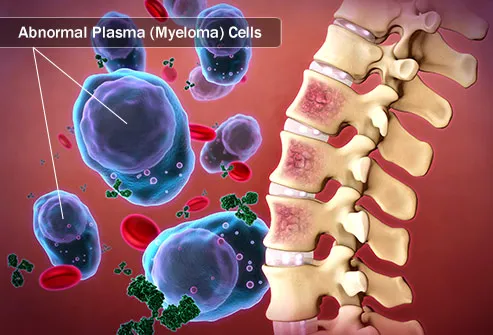
This blood cancer forms when plasma cells -- white blood cells that fight germs -- start to grow out of control. They’re found in marrow, the spongy tissue inside some of your bigger bones. Sometimes these abnormal plasma cells, known as myeloma cells, form a single tumor. That's called a solitary plasmacytoma. If you have more than one of these tumors, it’s called multiple myeloma.

Like many cancers, multiple myeloma has no known cause. However, there are some things that can raise your chances. Age plays a role: Most people who have it are over 65. It’s twice as common in African-Americans and slightly more likely to affect men than women. If someone in your family has it, you're more likely to get it, too.

You may wonder if there was anything you could have done to avoid this cancer. The answer is no. It doesn’t result from lifestyle choices, and you can’t discover it with early screening tests. In fact, multiple myeloma is hard to find early. Symptoms usually don’t show up until you’ve had it a while. But scientists learn more about what causes it every year, and new drugs are in the pipeline.

Plasma cells aren’t the only ones formed in your bone marrow. Other white blood cells, red blood cells, and platelets are created there, too. However, myeloma cells can prevent bone marrow from making these healthy blood cells. That can lead to:
o Anemia (low red blood cells), which can cause fatigue
o Thrombocytopenia (low platelets), which can cause bruising or bleeding
o Leukopenia (low white blood cells), which raises infection risk
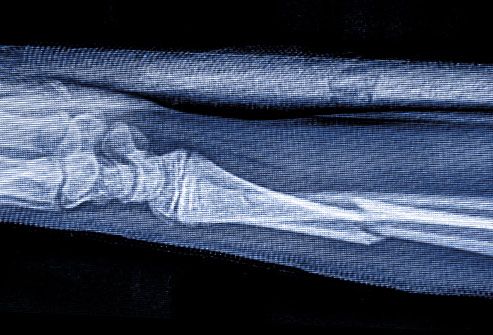
Myeloma cells are a major enemy to bones. Believe it or not, your “old” bone is constantly being dissolved by cells called osteoclasts. Meanwhile, cells known as osteoblasts are making new bone. These things normally happen together. Myeloma cells speed up the breakdown process, but not the buildup. The result: Your bones get weak and can fracture easily.
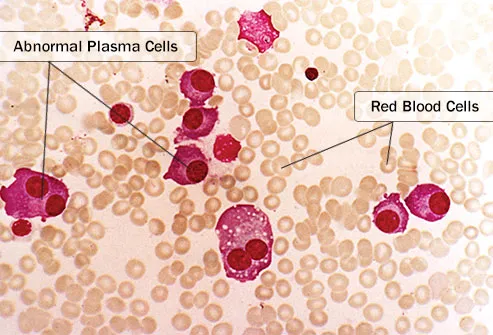
Plasma cells make antibodies, which fight germs. If you get a cold, they can create an antibody to attack the virus that’s making you sick. Abnormal plasma cells don’t do that. Myeloma cells multiply and quickly crowd out your healthy plasma cells, along with other white blood cells that protect you from infection.

Multiple myeloma can lead to health problems like:
o Confusion and dizziness
o Numbness or muscle weakness in your legs
o Kidney problems
Because your bone dissolves faster than normal, you may have a high level of calcium in your blood. You might also feel really thirsty and dehydrated.
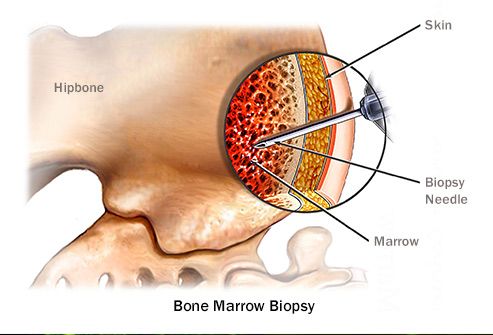
Blood tests can check for many red flags, like low blood cell counts and high calcium levels. X-rays can reveal bone loss. But the most important test for this cancer is a bone marrow biopsy. A doctor will insert a special needle into your bone and remove a tiny piece of tissue. He'll look at it with a microscope to see if you have myeloma cells.

It sounds crazy, but if you don’t have symptoms yet -- a stage called smoldering myeloma -- the doctor may tell you not to. Many people wait months or years before they start treatment.
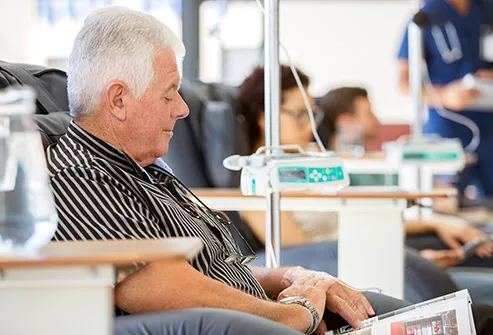
Yes. If you do need treatment, there are many types. You might try traditional cancer drugs like chemotherapy and corticosteroids. Or your doctor could try one of several new options:
o Immunomodulating agents: affect your immune system, but doctors don’t know how
o Proteasome inhibitors: stop cells from breaking down proteins
o Monoclonal antibodies: attack cells that are a threat
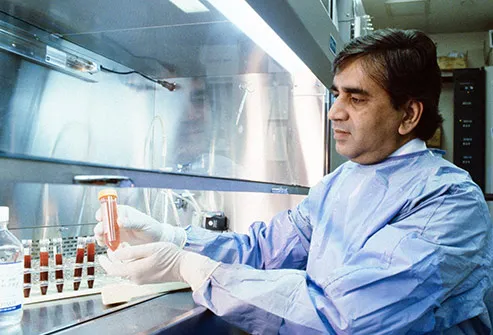
If you’re under 65, or over 65 and otherwise healthy, your doctor may suggest a stem cell transplant. Before it, you’ll get a high dose of chemo or radiation to kill cells in your bone marrow. Then you’ll get a transplant of healthy stem cells -- the ones that create new blood. You might get your own cells. The doctor will call this an autologous transplant. Or they could come from a donor. This is known as an allogeneic transplant.

Drugs and blood transfusions improve anemia (low red blood cell counts) and the extreme fatigue it causes. There’s a special procedure that thins your thickened blood, a problem that can result in dizziness and confusion. Another treatment, intravenous immunoglobulin (IVIG), will help your body fight infections. You might also take drugs called bisphosphonates to lower your risk of bone fractures.

It’s always a good idea to bring up concerns and ask questions at your office visits. Put these on your list:
o How can I stay healthy?
o Are there ways to ease my pain?
o What stage is my disease in, and what does it mean for me?
o Does my treatment have side effects?
o Should I get a second opinion?
o Should I join a clinical trial?